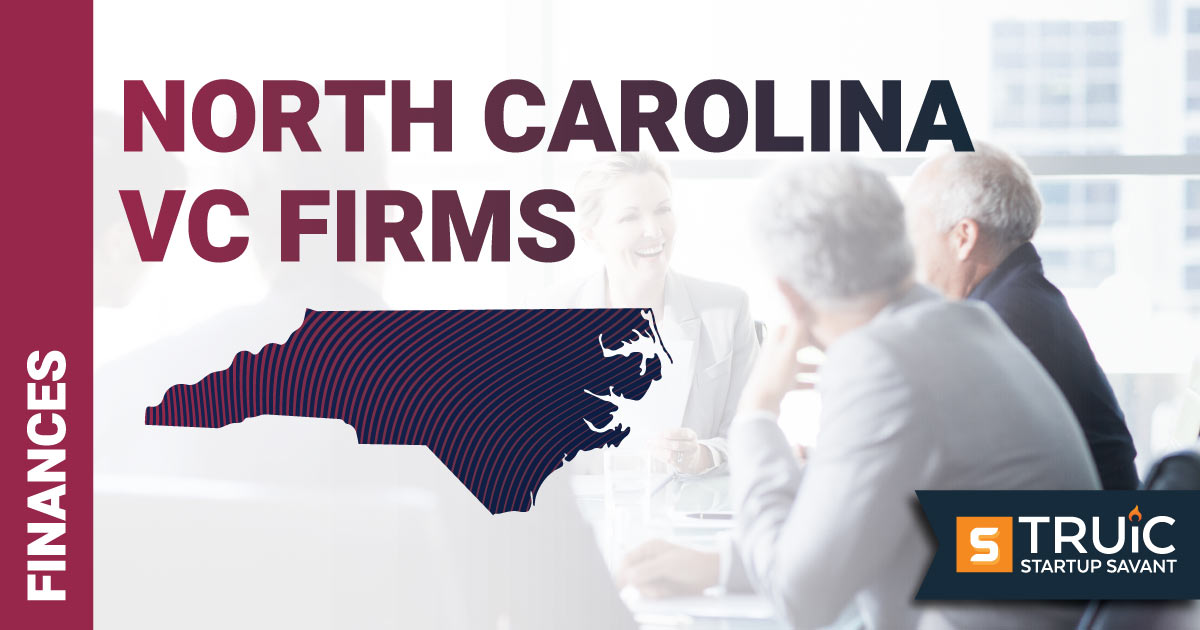North Carolina has long been a hotbed of innovation, with many successful startups beginning in the state. Today, Charlotte is home to general and niche venture capital firms. These VC firms help accelerate the growth of North Carolina's new innovative companies.
We also recommend checking out our full list of the top venture capital firms.

Best North Carolina VC Firms
1. PointSquared Ventures
- Location: Charlotte, NC
- Industries: Technology, Energy, Data Analytics
- Stage: Angel, Seed
- Notable Portfolio Companies: ST&E, Reaxcor, American Energy Holdings, Mountain Point, Central App
PointSquared Ventures makes pre-seed and seed investments in small businesses. The firm seeks to provide all the funding that a startup business needs, so the entrepreneur can focus on the actual business. PointSquared is self-funded and run by Robert Wentz. Current investments are in technology and data analytics. The firm's energy holdings are a legacy of Wentz's first firm, Stonewall Capital.
2. SJF Ventures
- Location: Durham, NC
- Industries: Energy, Mobility, Asset Recovery, Sustainable Food, Education, Health & Wellness, Software
- Stage: Early Stage, Late Stage
- Notable Portfolio Companies: Ellipsis Health, PosiGen, SchooLinks, Springboard, Mercado
SJF Ventures focuses on sustainable innovation. The firm requires proof of concept and an established consumer base and then provides capital to grow the base. As is fairly common, the firm expects a board seat for the duration of its involvement. Investments are mostly located within the US.
3. Broadstreet Partners
- Location: Charlotte, NC
- Industries: Industry Agnostic
- Stage: Management Transition
- Notable Portfolio Companies: Coastal Carolina Neuropsychiatric Center, Semify, Sayres, Ocozzio, Vital Care Industries
Broadtree Partners is interested in privately owned businesses where the owner wishes to become less involved. The firm can buy out or transition management, depending on the owner's goal for their role. During the transition, Broadtree brings in one of the management teams that it regularly collaborates with. Companies should have at least a 10% EBITDA margin and a total EBITDA of $1 million–$10 million. EBITDA should also have been growing for the past three years.
4. Ten Oaks Group
- Location: Charlotte, NC
- Industries: Industry Agnostic
- Stage: Corporate Divestitures
- Notable Portfolio Companies: Payment Processor, Industrial Valve Manufacturer, Industrial Air Filtration Manufacturer (names not disclosed)
Ten Oaks Group has holdings around the globe. The family office focuses on corporate divestitures. Companies should have an EBITDA of less than $50 million, and many companies are well below that. Uniquely, the family office typically closes transactions within 30 days and includes only limited indemnification stipulations.
5. Union Grove Venture Partners
- Location: Chapel Hill, NC
- Industries: Industry Agnostic
- Stage: Late Stage
- Notable Portfolio Companies: Breath, EndoChoice, Intacct, Iron Planet, Moxie Software
Union Grove Venture Partners primarily connects its investors with other private equity firms. Union Grove has some of its own direct investments, though. The companies that this firm chooses to make direct investments in are usually late-stage and have strong financials.
6. Frontier Growth
- Location: Charlotte, NC
- Industries: Software
- Stage: Growth
- Notable Portfolio Companies: WealthBox, Agreement Express, AccessOne, Jane Software, KnowBe4
Frontier Growth accelerates already-growing software companies. The firm has a number of holdings in the SaaS space. Usual investments are in companies that have revenues of $5-15 million. Investments can be used for growth or shareholder liquidity.
7. Pamlico Capital
- Location: Charlotte, NC
- Industries: Communications, Healthcare, Technology Services, Software
- Stage: First Money, Early Stage, Growth
- Notable Portfolio Companies: BNI, Avant, TRG Screen, US Eye, Vexus
Pamlico Capital invests in lower middle market companies that have annual revenues of $10 million–$150 million. Many of the firm's investments represent the first institutional capital in a company. Capital may be used for growth, buy-out, or restructuring. When making a capital infusion, the firm also expects to be involved in management and strategic planning.


